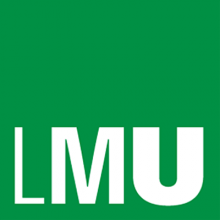German university leaders are at loggerheads with more than 10,000 academics and students over whether to press ahead with mandatory exams in the upcoming summer semester – and over the wider question of how productive academics are expected to be in the middle of a pandemic.
Delaying exams would mean overloaded courses and student housing in the winter semester later this year, university leaders fear.
“It has to continue; this is our general conviction. It’s important to have a semester that is mandatory for all,” said Peter-André Alt, president of the German Rectors’ Conference.
This debate, which is playing out in the pages of Germany’s national newspapers, has exposed inequalities between the country’s tenured professors and younger scholars stuck on fixed-term contracts.
More than 10,000 academics and students have signed a petition calling for the summer term, which normally starts in mid-April, to not be “business as usual”. They want students not to be penalised if they cannot work or take exams as normal, fixed-term contracts extended and teaching loads cut as lecturers struggle to shift teaching online.
“There are the students who have to generate an income, have visa issues, have care duties now. We all are home schooling now,” said Paula-Irene Villa, professor of sociology and gender studies at LMU Munich, and one of the authors of the open letter.
Institutional responses need to be based on the “real, actual, factual, empirical situation that universities find themselves in” and not as "universities were all run by people like me” − that is, "ideal" senior, financially secure, tenured professors, she said.
Switching to online teaching “takes more than just saying: let’s all go to Slack or Zoom”, she said.
But Professor Alt believes that while moving teaching online will be a “high burden” for academics, less time will be spent on activities such as class discussion. “In the end, I don’t think it’s more [work]” for academics, he said.
In reality, university leaders and petitioners do agree on some things, such as the need for a blanket extension of temporary contracts. Additionally, subjects such as lab-based disciplines and engineering that require physical teaching might have their semesters extended to June or July, Professor Alt said.
But the clash is as much about tone as about practical policies. During the pandemic, can academics be expected to be as productive as ever?
Professor Alt, an expert on German literature, recalled a period early in his career when the university library unexpectedly had to close – just as he was writing his second book.
“But I was very productive in those two months,” he said. “This was one of the most productive periods of my whole life.” He did acknowledge, however, many scholars are now working amid the “turmoil of children” at home. “There are problems,” he said. But “if scientists can’t be creative [in response], who can be?”
“Sure, for some this is going to be a very creative period,” responded Professor Villa. “I should be honest, for me, it’s partly amazing. I have months without conference travel...I can read much more than I could otherwise.”
"But, then again, I have two teenagers at home who need support with their school issues," she added.
For many academics and students in more precarious situations, the pandemic has sent their lives into a tailspin, she said. One colleague’s father-in-law was dying of coronavirus in Madrid, she revealed, while some of her students do not know how they will pay their rent. “That’s also the normal,” she said.






